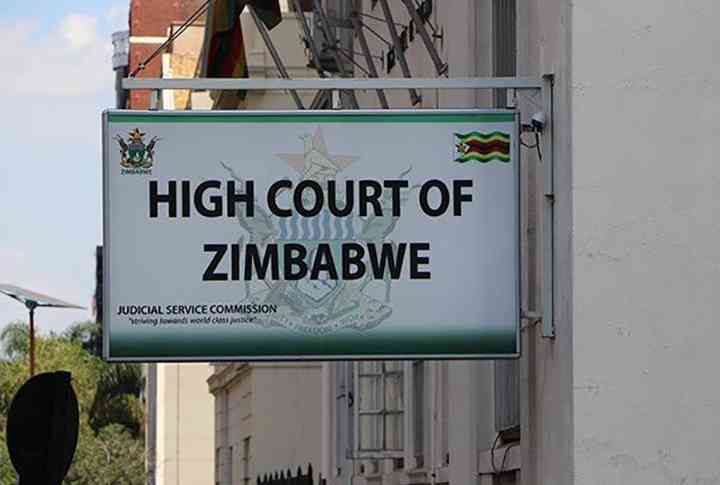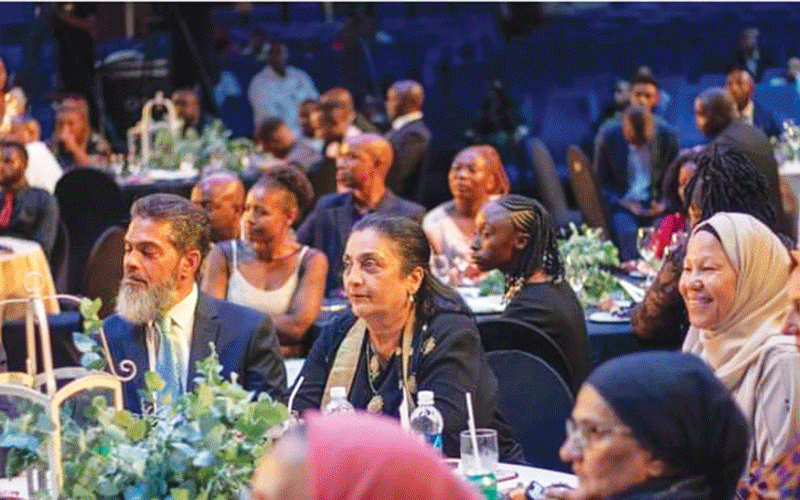
A DARING man stormed the Mahusekwa Police Station, hurled insults at police officers and removed clothes from a washing line before being locked up in holding cells, where he burnt the blankets after sticking in with some matches.
Brighton Mashapaidze was, however, saved by the High Court from serving the whole seven months effective jail term for the act on review.
High Court judges Justices Lucy Mungwari and Faith Mushure granted Mashapaidze a warrant of liberation after spending two months in prison.
The judges noted an error on the charges he was convicted on by the lower court and numerous procedural and substantive law prerequisites, including rushing to secure convictions, committing fundamental errors in the process by the lower court magistrate.
The judges said that, regrettably, resulted in a grave injustice for Mashapaidze, who is currently serving a seven-month prison term.
The court heard that on June 21 this year, Mashapaidze (38), who is unemployed, visited the police station in Mahusekwa and unprovoked, began hurling obscenities at the police officers and everyone present at the station.
He then removed a nearby washing line threatening to assault children who were playing outside.
A policeman confined the violent Mashapaidze in the police holding cells for disorderly conduct.
- Fresh land invasions hit Whitecliff
- Pomona cash row escalates
- Border Timbers targets European markets
- SA name strong A side for Zim tour
Keep Reading
Some 30 minutes later, one Tinashe Mhandu, who was sharing a cell with him, called out for help after the cell was engulfed in smoke.
Mashapaidze was found in possession of a box of matches while a blanket valued at US$40 was destroyed as a result of his actions.
He was, however, charged and arraigned before the magistrates’ court on two charges including disorderly conduct and malicious damage to property.
On the disorderly conduct charge, he was sentenced to four months imprisonment wholly suspended for three years on condition that he does not commit a similar offence.
On the second count of malicious damage to property, he was sentenced to 10 months imprisonment while two months were suspended for three years on condition that he does not commit a similar offence.
Another month was suspended on condition he resituates US$40 on or before July 26 this year.
However, the judges said the charges should have been red flags for the trial magistrate at Hwedza, who was seized with ascertaining the correctness of the charge before proceeding with the trial.
They said it appeared the accused was charged with the destruction of the same blanket twice, that is, once in the disorderly conduct charge and secondly, as a standalone malicious damage charge.
“This is tantamount to an improper splitting of charges. The same evidence in the first count would inevitably be applicable to the second count.
“This, however, did not strike the magistrate as odd because he proceeded with the trial without addressing the discrepancy,” the two judges said.
“It is the magistrate’s duty above everyone else’s to ensure that the charges are properly and clearly formulated before trial can be proceeded with. As can be expected, the unrepresented accused pleaded guilty to both counts.”
The judges said the magistrate dispensed reading of the charge in court despite him standing in court alone without a legal practitioner.
“Denying the accused that opportunity, therefore, undermines the integrity of the trial through the guilty plea,” they ruled.
The judges said the two charges cannot be separated saying the facts described in the State outline do not support the charge the court can enquire into.
“Put simply, the accused asserted that he had no intention to commit the offence because he was intoxicated at the material time. As a layman, he was raising a defence of intoxication in terms of the Code.
“A diligent magistrate attentive to the proceedings would have picked that up and pursued the accused’s explanation. He was proffering a valid defence to the charge.
“In legal parlance, he was denying that he had the requisite mens rea, that is to say, the necessary intention to commit the crime. It was important to find out whether or not the accused was so intoxicated that he could not formulate the intention to commit the crimes alleged against him.”
The judges said the magistrate could have raised a not guilty plea when the accused said he was drunk.
The judges also ordered his immediate release saying if convicted on trial de novo the magistrate should consider two months already served.











